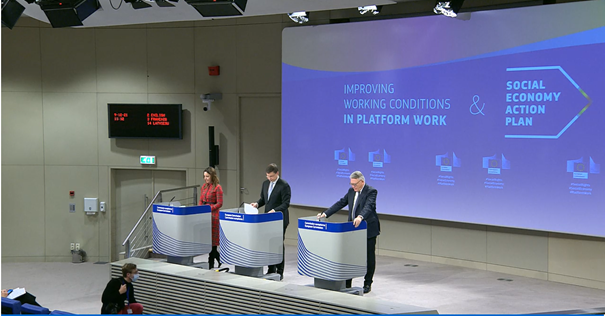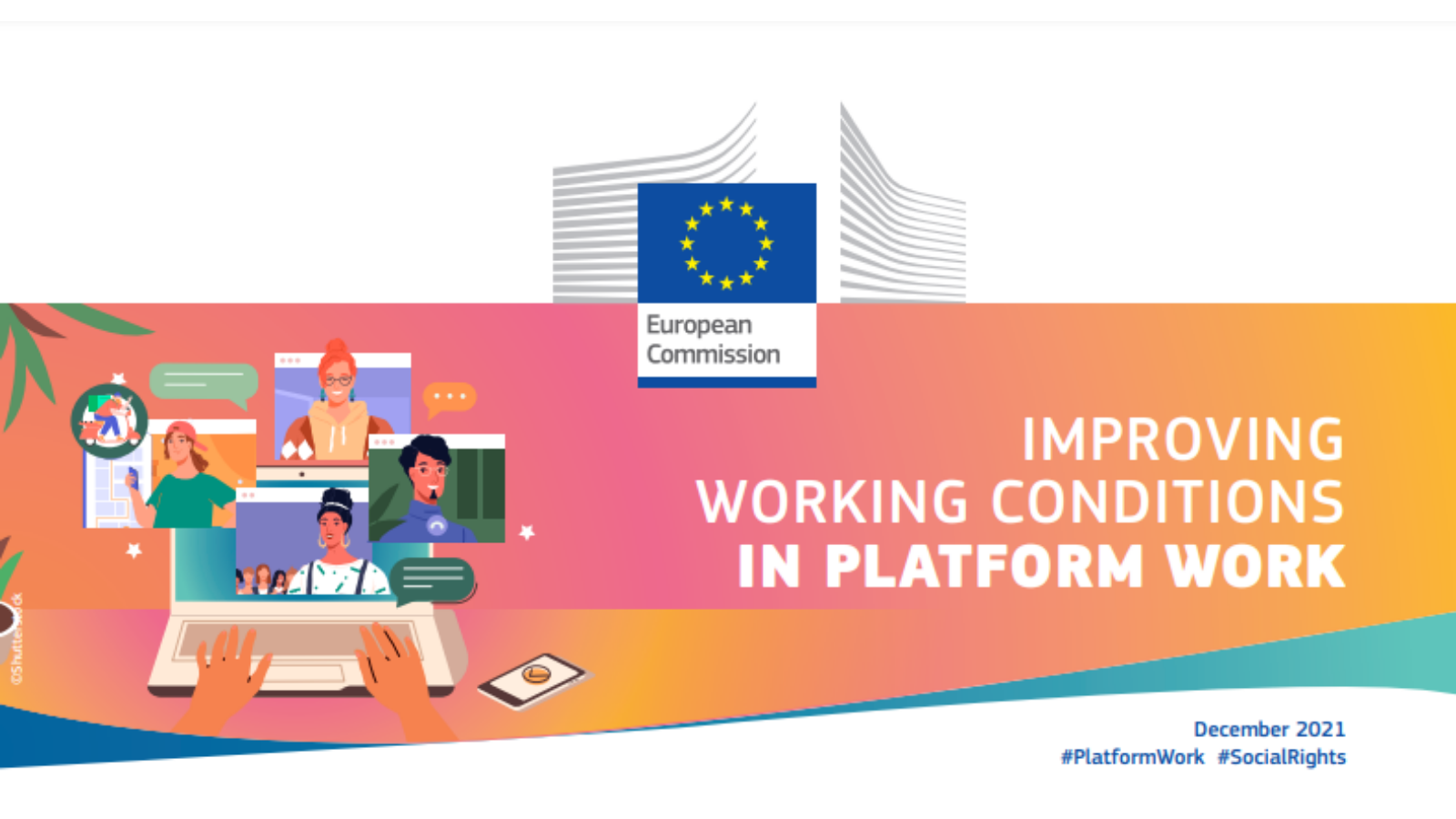
The European Commission launched its Platform Work Initiative’s centre piece, a draft for an EU Directive on December 8th. The set of measures proposed promises to improve the working conditions of platform workers and to put an end to abusive and false classification of their employment status. The Directive promotes transparency in algorithmic management of platform work and recognizes unfair competition cooperative platforms were facing until now.
The European Commission proposes a directive that will be the centrepiece of its efforts to improve the working conditions of workers in the platform economy. This directive will provide a legally binding tool that sets standards that the EU Member States will need to implement with their national legislation. Given the speed growth of the platform economy over the last years and the deterioration of workers rights, such a proposal was long overdue.
CECOP welcomes that the Directive proposes a rebuttable presumption of an employment relationship for people working through digital labour platforms. This promises to put an end to the unfair practice to classify workers as self-employed when in fact they are subordinated to the platforms. Platforms will need to prove that workers can rightfully be classified as self-employed. For many workers, this will also mean greatly improved access to social protection mechanisms and workers' rights.
The Directive also increases transparency in the use of algorithms by platforms, the establishment of review mechanisms for managerial decisions. CECOP welcomes this step, as it can favour cooperative platforms whose model provides workers with ownership and control over algorithms and data.
In addition, CECOP welcomes the fact that the Directive will allow a more level playing field with platforms committed to providing higher work standards such as cooperative platforms. The Impact Assessment Report, accompanying the Directive, recognised that “companies based on alternative business models, such as cooperatives, might have opportunities to grow once the playing field were levelled”.
Nevertheless, we warn that cooperatives should not be institutionalised as a way for platforms to circumvent their employers’ responsibilities and duties. Joining a cooperative can be a solution for self-employed working through platforms, provided that the cooperative principles are respected meaning voluntary membership and members' governance and control over the cooperative.[1]
Finally, we call the EU’s legislators to improve this proposed directive in line with the European Parliament’s Own-Initiative Report “Improving working conditions of platform workers”[2], the European Economic and Social Committee’s opinion “Non-standard employment and platform cooperatives in the digital transformation of industry”[3] and the European Commission’s Social Economy Action Plan[4] , which recognizes the potential of platform cooperatives to provide tangible advantages to all stakeholders concerned by the platform: workers with quality working conditions and adequate protection, consumers but also regions or states where the platform operates since they help retain revenues and taxes locally. The EU has the power to strengthen the potential of platform cooperatives, which can, in turn, contribute to achieving the EU objectives of fair digital transition.

----
[1] In reaction to the French “portage salarial” example from the Jean-Yves Frouin’s report mentioned in the Impact Assessment Report accompanying the Directive, please refer to the position paper of the French Federation of Business Employment Cooperatives (Fédération des Coopératives d’Activité et d’Emploi – CAE): https://documents.scop.coop/share/s/siVgbcp9RfSK1z1Qq-bLeQ (February 2021)
[2] https://www.europarl.europa.eu/doceo/document/TA-9-2021-0385_EN.html
[3] https://www.eesc.europa.eu/en/our-work/opinions-information-reports/opinions/non-standard-employment-and-platform-cooperatives-digital-transformation-industry-own-initiative-opinion
[4] https://ec.europa.eu/social/main.jsp?catId=1537&langId=en
In March 2021, CECOP published a paper addressing the needs of platform workers, and how developing cooperative solutions can challenge the platform economy and to improve working conditions for platform workers. Read it here.







 Employment & Social Inclusion
Employment & Social Inclusion 

